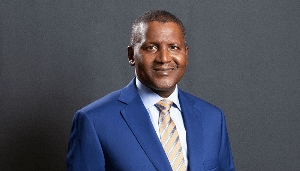Dr Keziah Malm, the Programme Manager of the National Malaria Control Programme (NMCP), on Tuesday urged Ghanaians to make proper use of available malaria interventions to reduce the high rate of infections and death.
She said malaria was still a disease of significant public health importance in Ghana, with high morbidity and infection rates, and that although deaths, due to the disease, have reduced considerably, there was still a long way to go.
Dr Malm indicated that available interventions had proven to work and urged the public to support the NMCP’s strategies of using the Long-Lasting Insecticide Treated Nets (LLINs), Indoor Residual Spraying, and Intermittent Preventive Treatment of pregnant women (IPTp) to prevent getting the infection.
Others, she said, were the Seasonal Malaria Chemoprevention (SMC), and proper Case Management Diagnosis and Prevention.
Dr Malm gave the advice at a press briefing in Accra where she presented the 2018 malaria overview in Ghana, ahead of the annual commemoration of the World Malaria Day (WHD), which would be observed on April 25, 2019 at Somanya in the Eastern Region.
She said available statistics showed that Ghana, in 2012, recorded eight people dying from malaria every day, but the figure reduced to one by the close of the year 2018.
She said the theme for the 2019 World Health Day: “Zero Malaria Starts with Me,” was a call for personal and stakeholder responsibilities towards the acceleration of the pace to prevent and eradicate the disease in Ghana.
Dr Malm said Ghana was still at the malaria control phase, yet to move to the pre-elimination, elimination and eradication stages respectively, and “we are doing well in all our interventions, but we’ve not yet achieved the 80 per cent target”.
She explained that against the National Strategic Plan (NSP) for Malaria Control 2014-2020 target of achieving 75 per cent reduction using 2012 as the baseline, malaria-related deaths, at all ages, reduced by 85 per cent from 2,799 in 2012 to 428 by the end of 2018.
Under-five malaria case fatality rate reduced from 0.6 per cent in 2012 to 0.16 per cent in 2018, representing a 73 per cent reduction, while malaria-related admissions regarding all ages, also reduced from 428,000 in 2012 to 351,163 in 2018, which was 18 per cent reduction.
Other cross-cutting interventions such as Procurement and Supply Chain, Research, Surveillance, Monitoring and Evaluation, the innovative use of technology to collect data on the effective nationwide distribution of the 16 million LLINs, as well as Advocacy, Social & Behaviour Communication were used.
The NMCP, Dr Malm said, in 2018 distributed 18 million Rapid Diagnostic Test Kits, and procured three million doses of Sulfadoxine plus Pyrimethamine, and ensured the availability of medication for malaria treatment across the country.
She, however, said the NMCP still faced challenges with the non-adherence to treatment protocols by prescribers, negative public attitude towards the use of LLINs, where some people refused to use the nets at all, while others misused them, and also complained about the dwindling donor resources to fight malaria, and the low uptake of the Intermittent Preventive Treatment of pregnant women.
She said going forward, the NMCP was strategising to increase the uptake of malaria control interventions at all levels through effective Social Change and Behavioural Change Communication; improved domestic resource mobilization; organised institution engagement and adherence to protocols by continuous training and supportive supervision.
Dr Badu Sarkodie, the Director of Public Health of the Ghana Health Service, said, annually, more than 200 million people globally suffered from malaria, while one child died every two minutes from the disease, not to mention its adverse economic implications and effects on health systems around the world.
He said the recent introduction of an additional tool, the new malaria vaccine; MosquirixTM, to be piloted by Ghana, Malawi and Kenya, was welcoming news to ensure the elimination of malaria and protection of children under two years.
Mr Henry Ampong, the Head of Corporate Banking, ECOBANK Ghana, called for a renewed focus on the fight against malaria, saying: “We need to take urgent actions to bring the fight on track”.
He said the Bank had a policy, which supported education, health and financial inclusion and was committed to partnering with the NMCP to develop the right mental attitude of Ghanaians towards environmental protection and supporting key interventions to eradicate malaria.
General News of Wednesday, 24 April 2019
Source: ghananewsagency.org

















